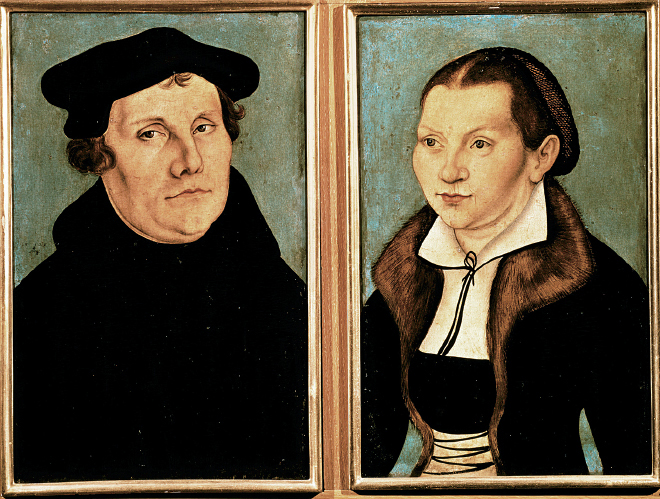The Reformation and German Politics

Criticism of the church was widespread in Europe in the early sixteenth century. Yet such movements could be more easily squelched by the strong central governments of Spain, France, and England. The Holy Roman Empire, in contrast, included hundreds of largely independent states in which the emperor had far less authority than did the monarchs of western Europe. Thus local rulers of the many states in the empire continued to exercise great power.
Luther’s ideas appealed to local rulers within the empire for a variety of reasons. Though Germany was not a nation, people did have an understanding of being German because of their language and traditions. Luther frequently used the phrase “we Germans” in his attacks on the papacy, and his appeal to national feeling influenced many rulers. Also, while some German rulers were sincerely attracted to Lutheran ideas, material considerations swayed many others to embrace the new faith. The rejection of Roman Catholicism and the adoption of Protestantism would mean the legal confiscation of valuable church property. Thus many political authorities in the empire used the religious issue to extend their financial and political power and to enhance their independence from the emperor.
The Habsburg Charles V, elected as emperor in 1521, was a vigorous defender of Catholicism, so it is not surprising that the Reformation led to religious wars. Protestant territories in the empire formed military alliances, and the emperor could not oppose them effectively given other military engagements. In southeastern Europe Habsburg troops were already fighting the Ottoman Turks. Habsburg soldiers were also engaged in a series of wars with the Valois (VAL-
Finally, in 1555, Charles agreed to the Peace of Augsburg, which officially recognized Lutheranism and ended religious war in Germany for many decades. Under this treaty, the political authority in each territory of the Holy Roman Empire was permitted to decide whether the territory would be Catholic or Lutheran. His hope of uniting his empire under a single church dashed, Charles V abdicated in 1556, transferring power over his Spanish and Netherlandish holdings to his son Philip II and his imperial power to his brother Ferdinand.